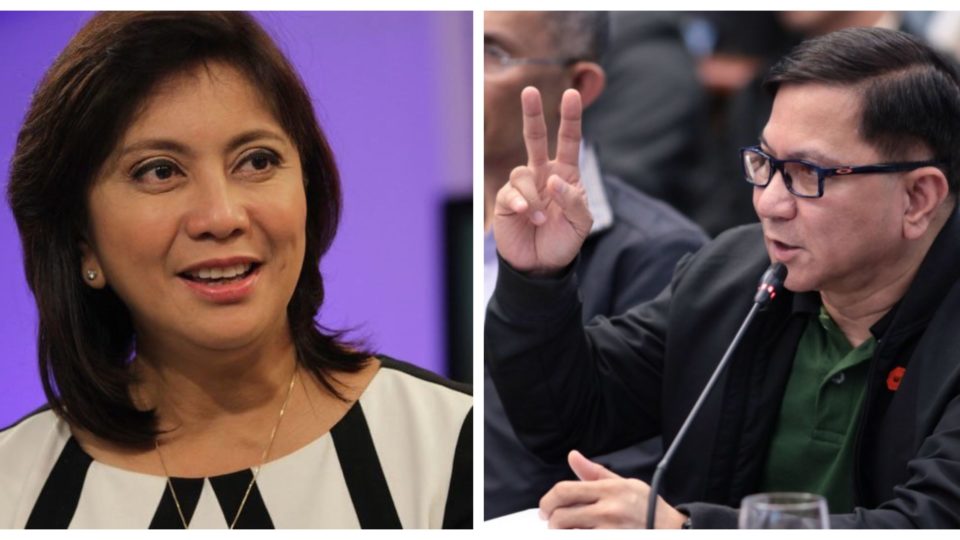The majority of illegal drugs smuggled into the Philippines come from China, Vice President Leni Robredo said yesterday, citing information given to her by U.S. officials.
Robredo made the revelation after a meeting with the Philippine National Police (PNP) and Department of Interior and Local Government (DILG) at her Quezon City office to discuss the government’s anti-drug campaign.
Read: Robredo could reshape Philippines’ drug war for the better, says Human Rights Watch
She told reporters that she’s looking into gathering more information after she “received reports that most of the drugs that are being smuggled into the country are from China. Those who are arrested are also mostly Chinese nationals or Filipino-Chinese nationals, so it is something we should look into.”
Robredo added that she will also be looking into “gambling, casinos, and POGOs,” or Philippines Offshore Gaming Operators, which she said are being used by drug lords to launder money.
However, Philippine Drug Enforcement Agency (PDEA) Director General Aaron Aquino contradicted Robredo, maintaining that China is no longer the top source of illegal drugs, though it was in the past. Most of the illegal drugs in the country, he said, now come from syndicates in the Golden Triangle, a region long known for drug manufacturing that straddles Laos, Myanmar, and Thailand.
Aquino told the television news show “Bandila” last night that Golden Triangle operators have “become the biggest distributor of drugs in Southeast Asia, [and] their reach goes as far as Australia, U.S., and Europe.”
He alleged that highly publicized drug seizures originating in China, including the PHP163 million (about US$3.2 million) worth of meth packed inside Chinese-labeled tea bags discovered in Manila last year, had merely been repackaged by the Golden Triangle to make it appear that the drugs were from China.
Aquino also claimed that since the Philippines launched its crackdown on illegal drugs, drug manufacturers in China had been laying low, moving from manufacturing to merely outsourcing their drugs from the Golden Triangle. (But wouldn’t that still make them middlemen?)
“[It is now] the Golden Triangle who will then smuggle the drugs into countries, for example, the Philippines,” Aquino said in Filipino.
Aquino, however, failed to point out that one of the biggest meth haul busts in the country last year came from China. The shipment contained 1.6 tons of meth smuggled in magnetic lifters believed to be worth PHP11 billion, and was seized in Cavite province in August 2018.
PNP officer-in-charge Police Maj. Gen. Archie Gamboa, meanwhile, said authorities are aware of the illegal shipments still taking place in the country.
“That’s why there should be strict enforcement in our borders. We should have more intel, [for] which foreign counterparts [are] very essential,” Gamboa said, adding tighter cooperation will be implemented with countries where the Golden Triangle operates.
Robredo over the weekend had said that the anti-drug committee’s PHP15 million (US$296,000) allotted budget for 2020 is insufficient to implement strategies to cover some 1.6 million drug addicts, adding that it appears even more minuscule next to the PNP’s proposed budget of PHP142.51 billion (US$2.8 billion).
That, however, didn’t sit well with House Speaker Alan Peter Cayetano, who claimed, without evidence, that publicly asking for more funds would somehow give “drug lords” a strategic advantage. He also went on to claim — equally nonsensically — that he wasn’t criticizing Robredo, then in the same breath mocking her decision to put an end to the PNP’s bloody “Oplan Tokhang” anti-drug campaign as “Oplan All-Talk-Lang.”
Read: Malacañang Palace to allow VP Robredo to scrap controversial Oplan Tokhang
House Committee on Dangerous Drugs Chair Robert “Ace” Barbers, however, said he supported Robredo’s call and that his panel will help lobby for a higher budget for the anti-illegal drugs agency.




